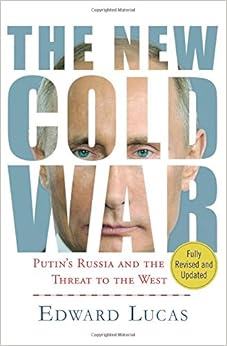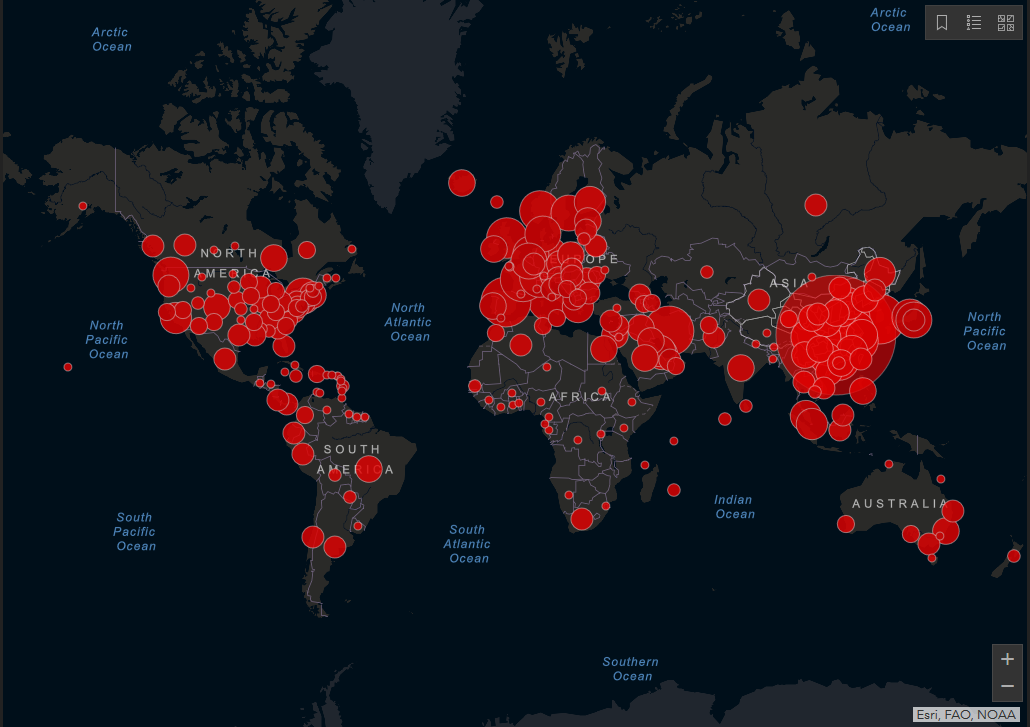 On June 12, the MSM reported that the International Monetary Fund was the latest known target of a “significant” cyber attack over the past several months. The Washington-based IMF, which brings together 187 member states, told staffers about the attack on June 8.
On June 12, the MSM reported that the International Monetary Fund was the latest known target of a “significant” cyber attack over the past several months. The Washington-based IMF, which brings together 187 member states, told staffers about the attack on June 8.
Cybersecurity expert Tom Kellerman, who has worked for both the IMF and the World Bank, the IMF’s sister institution, explained that the intruders’ goal was to install software that would give an unknown national government a “digital insider presence” on the IMF computer network. Such a presence could yield secret economic data used by the fund to promote exchange rate stability, support balanced international trade, and provide resources to ameliorate members’ balance-of-payments crises.
“It was a targeted attack,” said Tom Kellerman, who serves on the board of the International Cyber Security Protection Alliance. He added that the code used in the IMF incident was “developed specifically” for the attack on the institution. Jeff Moss, a self-described computer hacker and member of the US Department of Homeland Security Advisory Committee, also said he believed the cyber attack was “conducted on behalf of a nation-state” either seeking sensitive data about IMF strategies or embarrassing information about the organization to “undermine its clout.”
IMF spokesman David Hawley assured MSNBC that the organization is “fully functional” and declined to provide details on what he termed an “IT incident,” including whether sensitive data were stolen. He also refused to comment on Kellerman’s conclusion about the intruders’ goal. The New York Times cited unnamed IMF officials as saying the cyber attack was “sophisticated and serious.” According to a Defense Department spokeswoman, the US Federal Bureau of Investigation is investigating the electronic breach.
The World Bank, according to an anonymous bank official, was alarmed by the attack on the IMF and promptly cut a computer link that allows the two organizations to share non-sensitive information. The move was taken out of “an abundance of caution,” said the official. The IMF is already reeling from the arrest of French socialist Dominique Strauss-Kahn, who resigned as the organization’s managing director last month after being accused of sexually assaulting a maid in a New York hotel.
On June 24, Hawley said that the institution was making progress in identifying the hackers, having found the files that were copied. “We have identified files that have been copied and we are assessing the importance of those files,” Hawley explained, but quickly added: “We have no evidence that information held in our emails, our financial systems or the fund’s document management system have been compromised.”
The IMF cyber attack follows a series of major corporate data breaches. Earlier this month, Spanish police arrested three reported members of the international “Anonymous” cyber-ring, charging the “hacktivists” with raiding the computer networks of the Spanish banks BBVA and Bankia, the Italian energy company Enel, and the governments of Egypt, Algeria, Libya, Iran, Chile, Colombia and New Zealand, as well as penetrating 100 million Sony PlayStation accounts. Google has accused hackers from Red China of targeting the Gmail accounts of senior US government officials and even hinted that the communist regime was behind the attack.
In May, about 360,000 Citibank credit card customers in North America had their names, account numbers, and email addresses stolen. Two years ago, Russian hackers were blamed for another incident in which tens of millions of dollars were electronically stolen from Citibank. Lockheed Martin Corp, the Pentagon’s top supplier by sales and the biggest information technology provider to the US government, admitted that it had thwarted a “significant” cyber attack. The defense contractor said it had become a “frequent target of adversaries around the world.” Lockheed Martin manufactures several stealth fighter jets, namely, the F-22 Raptor and F-35 Joint Strike Fighter.
On June 9, CIA Director Leon Panetta, whom the Senate confirmed this past Tuesday as the next defense secretary, told Congress that the USA faces a “Pearl Harbor” in the cyberworld at any time. “The next Pearl Harbor that we confront could be a cyber attack that cripples our power systems, our grid, our security systems, our financial systems, our governmental systems.”
If dot.gov is aware of the identity of the IMF attacker, then no one is willing to talk about it. Of course, Russia and Red China harbour numerous computer hackers, as suggested above. “The Internet can now be used to attack small countries,” comments Yevgeny Kaspersky, chief executive of Moscow-based Kaspersky Lab, referring to attempts to bring down government networks in Estonia and Georgia in 2008. “There are Russian and Chinese hackers that have the power to do that.”
Kaspersky explains that Russian hacking flourishes as “a cyber-criminal ecosystem” of spammers, identity thieves, and botnets who regularly launch denial-of-service attacks and control vast networks of computers infected by malware. According to Kaspersky, hackers in Communist China do not lag too far behind their Russian counterparts in cyber-subversion. In 2009 Kaspersky Lab registered 73.62 million hacking attacks, of which 52.7% originated from China.
Certainly, the Kremlin has a very strong modus operandi for discreetly learning the financial secrets of the IMF. According to the international body, Russia—where economic power is heavily concentrated in state companies and regime-linked oligarchies, much like it was under open communism—still needs to modernize its economy. Rather than promote competition, for example, Prime Minister Vladimir Putin, among other policies, has introduced a payroll tax that has driven small and medium-sized enterprises back into the “shadow economy.”
“Current policies are not ambitious enough and not focused enough,” admonished Juha Kähkönen, head of an IMF mission that spent two weeks in Moscow meeting senior officials. The mission warned that failure to reform Russia’s export-driven economy will expose the country to another recession triggered by a drop in oil prices. The comments come as President Dmitry Medvedev himself described Russia’s investment climate as “very bad.” The IMF has urged Russian officials to reduce the non-oil budget deficit, from its current level of 11 per cent of the GDP to 4.7 per cent, and bump up interest rates to head off rising inflation.
The collapse of Russia’s pseudo-capitalist economy in 2008-2009, when GDP fell nearly 8 per cent, revealed the shortcoming of an economy that relies heavily on consumption and has very low investment rates.
In a related story, the Wall Street Journal reports that Russia will likely continue lowering its US debt holdings as the Obama Admin struggles to contain a budget deficit and prop up a “tepid” economic recovery. “The share of our portfolio in U.S. instruments has gone down and probably will go down further,” Arkady Dvorkovich told Dow Jones in an
interview on the sidelines of the St. Petersburg International Economic Forum. Dvorkovich is chief economic aide to President Medvedev.
The Kremlin’s holdings of US Treasury securities fell to US$125.4 billion in April 2011 from US$176.3 billion in October 2010. Its financial reserves, which stood at US$528 billion as of June 10, are the world’s third largest after Red China and Japan’s. As of May, according to Russia’s central bank, 47% of reserves were in dollars and 41% in euros, compared with 45.2% in dollars and 43.1% in euros on Jan. 1. If the Communist Bloc decides to “nuke” the US economy, then all Moscow and Beijing need to do to totally undermine confidence in the US dollar as a reserve currency is to dump everything.




The group known as Anonymous and its splinter cells are said to be behind these cyber-attacks. Oddly enough, the Kremlin-run Russia Today didn’t mind to promote their propaganda on air, as they were doing this to help out Julian Assange, the head of WikiLeaks.
Question is, is WikiLeaks really working for Russia? Even Assange himself didn’t mind going on RT either.
It’s also strange the same hackers attacked the IMF, is it revenge for the de-throning of the French Socialist who was nabbed for sexual assault? Aside from that, the BRIC also wants to run the IMF with its own puppet.
Pingback: Watcher’s Council Nominations – Fourth Of July Edition | Virginia Right!
Pingback: Bookworm Room » What we Weasel Watchers are watching (and reading)
Pingback: TrevorLoudon.com: New Zeal Blog » The Council Has Spoken!! This Week’s Watcher’s Council Results 07/01/11
Pingback: Bookworm Room » Watcher’s Council Winners for July 1